For Product Registration and general enquires please contact us
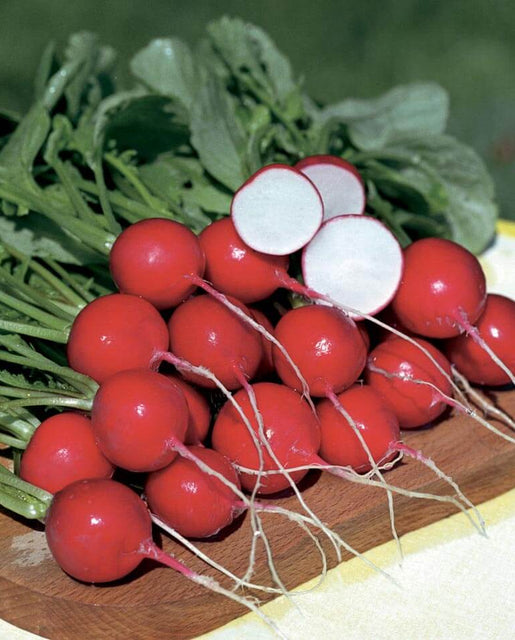
Rudolf Coated Organic
$8.99 – $439.99
Nice, large, bright red radishes with excellent flavour and short tops. Rudolf organic radish seeds are ideal for winter and spring production. Fast growth and dependable uniformity make Rudolf a great choice for the home or market gardener.
West Coast Seeds ships anywhere in North America. However, we are not able to ship garlic, potatoes, asparagus crowns, bulbs, onion sets, Mason bee cocoons, or nematodes outside of Canada. We regret, we cannot accept returns or damages for orders outside of Canada. The minimum shipping charge to the US is $9.99.
Description
More details about Rudolf Coated Organic
Rudolf radish seeds are CERTIFIED ORGANIC! Nice, large, bright red radishes with excellent flavour and short tops. Rudolf organic radish seeds are ideal for winter and spring production. Fast growth and dependable uniformity make Rudolf a great choice for the home or market gardener. Rudolf is very early maturing, and can be harvested at a larger size than most without becoming woody. Plant radishes near beans, beets, celeriac, chervil, cucumber, lettuce, mint, parsnip, peas, spinach, squash, and tomatoes. Avoid planting near Agastache or potatoes. It is said that planting 3 or 4 icicle radishes around the mound where you plant squash, and allowing them to grow and bloom, will prevent most pests of squash and cucumber. Winner of the RHS Award of Garden Merit. These seeds are coated with an inert, organically certified layer which helps to minimize clumping in storage and seed sowing machines. The coating is approved by organic certifiers in Canada, the US, EU, and Japan. Matures in 24 days. (Open-pollinated seeds)-
- Excellent flavour and short tops
- Fast growth, dependable uniformity
- Great choice for home or market gardener
- Open-pollinated seeds
- Matures in 24 days
All About Rudolf Coated Organic
How to Grow Radishes

Step 1: Timing
Radishes can be grown all season but they’re easiest when sown just after the last frost date and again at the end of summer and into the fall. Optimal soil temperature: 18-24°C (65-75°F). Seeds should sprout in 5-7 days.
Step 2: Starting
Sow seeds 5mm (¼”) deep, 25 seeds per 30cm (12″) in rows spaced 30-45cm (12-18″) apart, and thin to 6-12 plants per 30cm (12″).
Step 3: Growing
Ideal pH: 6.0-6.8. Radishes are moderate to heavy feeders. Best in rich, loamy soil amended with composted manure. Add 1 cup of complete organic fertilizer for every 3m (10′) of row for background fertility. Lime beds the previous fall. The real secret to growing this little vegetable is speed. Sow a short row frequently, thin them quickly, keep them watered, eat them quickly, and sow some more.
Step 4: Germination
From direct sowing. In optimal conditions at least 80% of seeds will germinate. Usual seed life: 4 years. Per 100′ row: 1.2M seeds, per acre: 522M seeds.
Step 5: Harvest
Harvest promptly when radishes are the size of large marbles. The leaves and developing seedpods are also tasty.
Tips!
Disease & Pests: Root maggots and flea beetles can be a problem. Expect to lose 20-30% of your crop to maggots if you don’t use a floating row cover. Companion Planting: Plant radishes near beans, beets, celeriac, chervil, cucumber, lettuce, mint, parsnip, peas, spinach, squash, and tomatoes. Avoid planting near Agastache or potatoes. It is said that planting 3 or 4 icicle radishes around the mound where you plant squash, and allowing them to grow and bloom, will prevent most pests of squash and cucumber.Additional information
| Matures | in 24 days |
|---|---|
| Season | Cool season |
| Exposure | Full sun |
| Quantity | 200, 5000, 25000, 100000 |
You must be logged in to post a review.




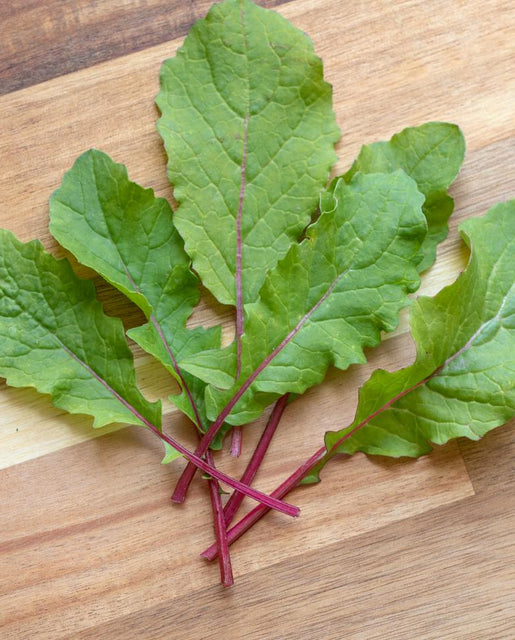
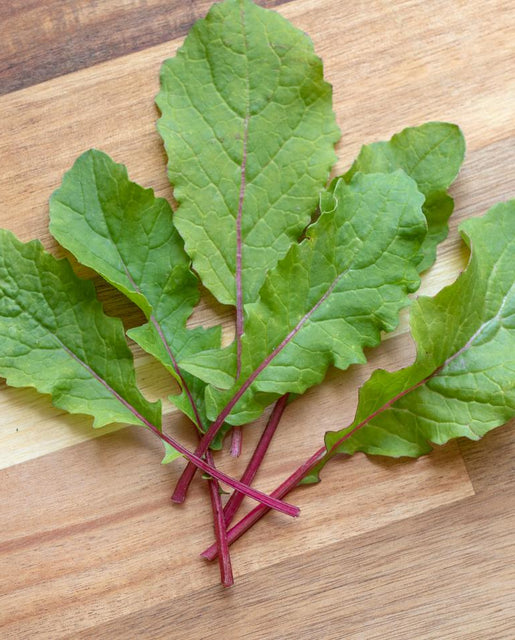
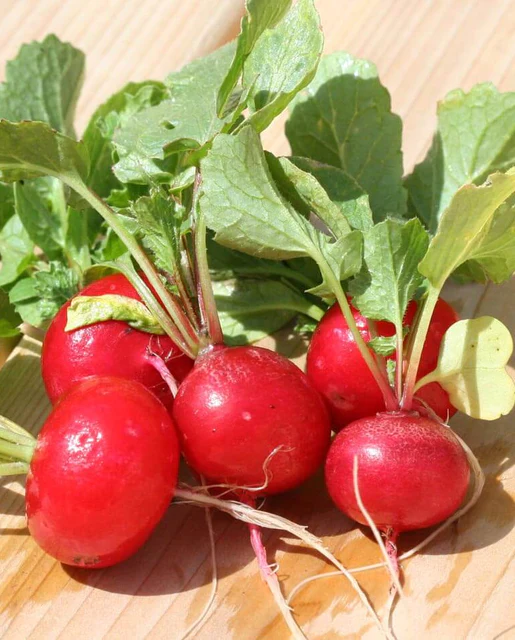
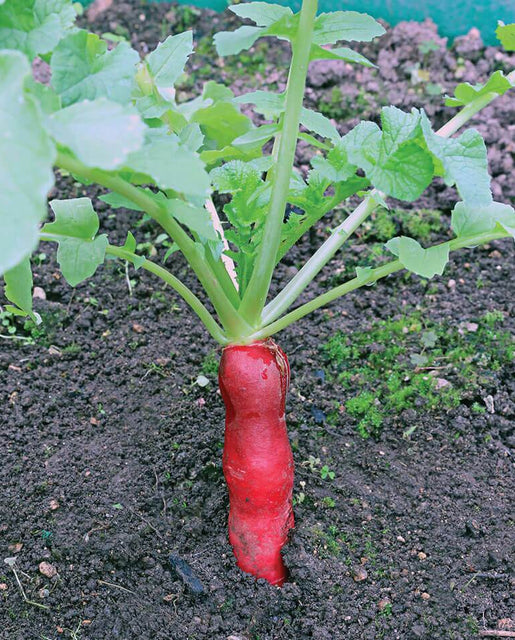
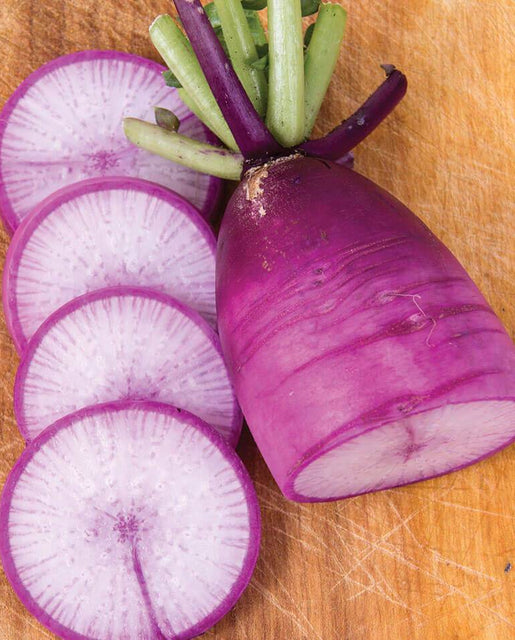




Reviews
There are no reviews yet.